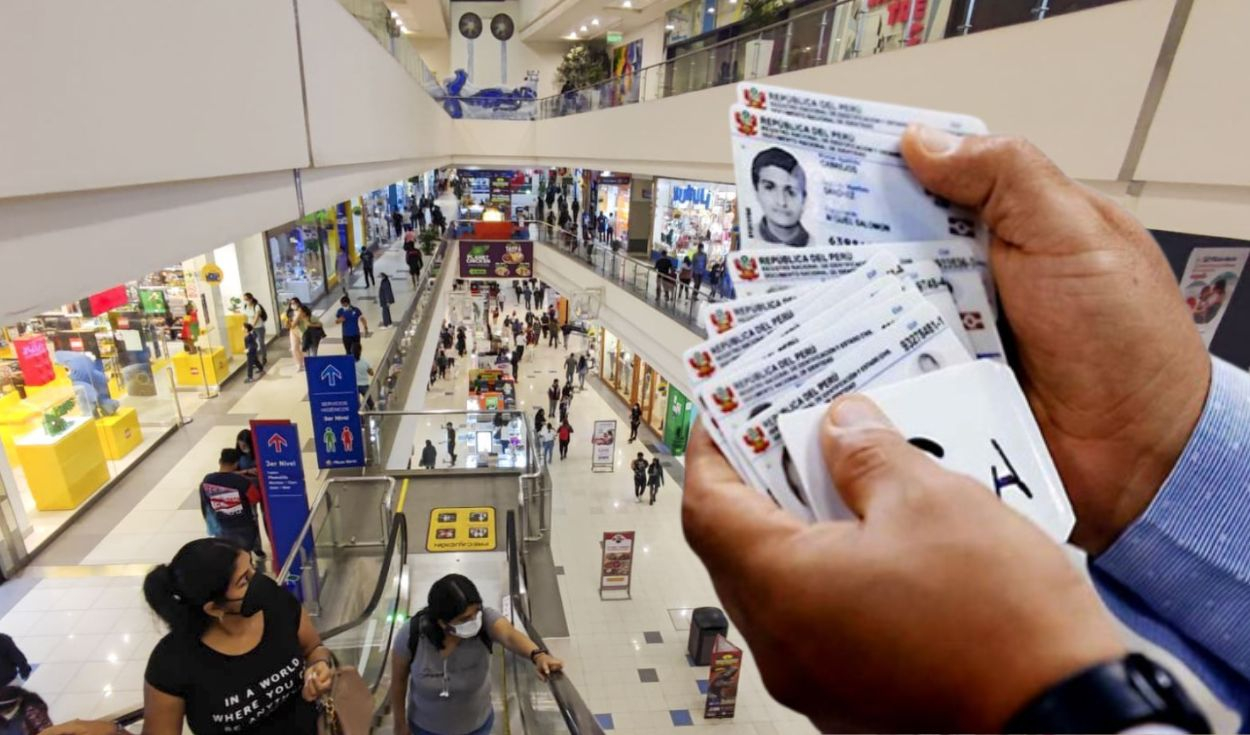
In Peru, some establishments request the ID number when paying, generating doubts about their obligation and possible implications. Know in what cases it is a legal requirement and when not.
In diverse commercial establishments and Supermarkets Of all of Peru, it is a common practice that customers are asked to provide their number of National Identity Document (DNI) at the time of making a purchase. Many people provide this information without questions, however, it is essential to know the implications of this request and in what cases it is really mandatory.
The National Superintendence of Customs and Tax Administration (SUNAT) It establishes that only in purchases that exceed 700 soles it is mandatory to provide the ID. This responds to tax regulations that require the identification of the buyer for tax purposes. Know here if it is necessary to present it for other types of transactions.
The shopping centers request DNI from their clients for this reason
In many cases, the establishments request the DNI without a normative support that requires it. According to Crisologist Cáceres, president of the Peruvian Association of Consumers and Users (ASPEC)some companies collect these data to prepare your customer consumption profiles. This allows them to segment their advertising and promotions strategies, identifying purchase patterns, preferences and even the purchasing capacity of consumers.
However, if the purchase does not exceed the threshold of 700 soles and the customer does not require the issuance of a voucher for tax purposes, it is not obliged to provide its identity document. In these cases, the request of the DNI It can be considered an unnecessary and avoidable practice.
Why could it be risky to deliver my ID when shopping in supermarkets?
The main risk of Share the ID number With any establishment is the unauthorized use of personal information. Chrysologist Cáceres warns that, unlike a telephone number or an email, the ID contains unalterable and permanent data, which makes it a key identifier that can be used for improper purposes.
Among the possible risks is the resale of databases to third parties, which exposes consumers to aggressive marketing strategies and even possible fraud. In extreme cases, this information could be used in criminal activities such as identity impersonation, which makes citizens cautious when providing their identity document.
Is it mandatory to deliver my ID when buying?
According to current regulations, commercial establishments can only require the presentation of the ID when the purchase exceeds 700 soles or when the client requests that the transaction be considered for income tax purposes. In purchases smaller than that amount, the consumer is not obliged to provide its identity document.
Source: Larepublica
Alia is a professional author and journalist, working at 247 news agency. She writes on various topics from economy news to general interest pieces, providing readers with relevant and informative content. With years of experience, she brings a unique perspective and in-depth analysis to her work.












